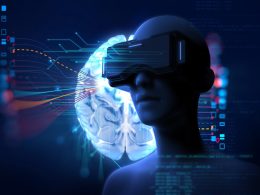Pharmacology, the science of drugs and their effects on the human body, has always been a cornerstone of medical treatment. Over the past few decades, significant strides have been made in this field, leading to more effective and personalized treatments for a variety of conditions. This article explores some of the most exciting pharmacology advances and how they are revolutionizing healthcare.
Personalized Medicine: Tailoring Treatments to Individual Needs
One of the most promising pharmacology advances is the advent of personalized medicine. This approach tailors medical treatment to the individual characteristics of each patient. By understanding a patient’s genetic makeup, doctors can predict how they will respond to certain medications, allowing for more precise and effective treatments.
Personalized medicine has been particularly transformative in the field of oncology. Cancer treatments that were once one-size-fits-all are now being customized to target specific genetic mutations within a tumor. This not only increases the efficacy of the treatment but also minimizes side effects. For instance, drugs like Trastuzumab (Herceptin) are used specifically for breast cancer patients whose tumors overexpress the HER2 protein.
Biotechnology and Biopharmaceuticals: The New Frontier
The integration of biotechnology into pharmacology has led to the development of biopharmaceuticals, which are drugs produced using living organisms. These include monoclonal antibodies, recombinant proteins, and gene therapies. Biopharmaceuticals offer several advantages over traditional small-molecule drugs, including higher specificity and reduced toxicity.
Monoclonal antibodies, for example, have revolutionized the treatment of autoimmune diseases and cancers. Drugs like Rituximab and Infliximab target specific cells or proteins involved in disease processes, offering more targeted and effective treatments. Gene therapies, such as Luxturna for inherited retinal diseases, are also opening new avenues for treating previously incurable conditions.
Advances in Drug Delivery Systems
Another area where pharmacology advances are making a significant impact is in drug delivery systems. Traditional methods of drug delivery, such as oral or intravenous administration, often come with limitations, including poor bioavailability and systemic side effects. New delivery systems aim to overcome these challenges by improving the precision and efficiency of drug administration.
Nanotechnology-based drug delivery systems, for instance, can target drugs to specific cells or tissues, enhancing their effectiveness while minimizing side effects. Liposomes, nanoparticles, and biodegradable polymers are being used to encapsulate drugs, ensuring they are released at the right place and time. This is particularly beneficial for cancer treatments, where targeted delivery can significantly improve outcomes.
Artificial Intelligence and Machine Learning: Revolutionizing Drug Discovery
Artificial intelligence (AI) and machine learning are becoming indispensable tools in pharmacology. These technologies are accelerating the drug discovery process by analyzing vast amounts of data to identify potential drug candidates. AI algorithms can predict how different compounds will interact with biological targets, significantly reducing the time and cost associated with traditional drug discovery methods.
Machine learning is also being used to optimize drug formulations and dosing regimens. By analyzing patient data, these algorithms can recommend personalized dosing schedules that maximize efficacy while minimizing side effects. This is particularly useful in managing chronic conditions like diabetes and hypertension, where long-term medication adherence is crucial.
CRISPR and Gene Editing: The Future of Pharmacology
CRISPR-Cas9, a revolutionary gene-editing technology, is poised to transform pharmacology and medicine as a whole. This technology allows for precise modifications to the genome, offering the potential to correct genetic defects at their source. While still in its early stages, CRISPR has shown promise in treating a variety of genetic disorders, including sickle cell anemia and cystic fibrosis.
In pharmacology, CRISPR is being used to develop new models for drug testing, making it easier to study the effects of drugs on specific genetic conditions. This not only speeds up the drug development process but also increases the likelihood of finding effective treatments for rare and complex diseases.
Telepharmacy and Digital Health: Expanding Access to Care
The rise of telepharmacy and digital health platforms is another significant pharmacology advance that is enhancing treatment accessibility. Telepharmacy allows pharmacists to provide consultations and manage medications remotely, making it easier for patients in rural or underserved areas to access care.
Digital health platforms also offer tools for medication management, adherence tracking, and remote monitoring. These technologies empower patients to take an active role in their treatment, improving outcomes and reducing healthcare costs. For example, mobile apps that remind patients to take their medications or track their symptoms can significantly enhance treatment adherence and effectiveness.
Pharmacogenomics: Bridging the Gap Between Genetics and Pharmacology
Pharmacogenomics, the study of how genes affect a person’s response to drugs, is another area where pharmacology advances are making a big impact. By understanding the genetic factors that influence drug metabolism, efficacy, and toxicity, healthcare providers can make more informed decisions about which medications to prescribe.
This field has already led to the development of genetic tests that can predict responses to certain medications. For instance, tests for the CYP2C19 gene can help determine whether a patient will benefit from drugs like Clopidogrel, a common blood thinner. Such tests are paving the way for more personalized and effective treatments.
Conclusion
The field of pharmacology is undergoing a rapid transformation, driven by advances in technology, genetics, and biotechnology. These pharmacology advances are not only enhancing the efficacy and safety of treatments but also making healthcare more personalized and accessible. As we continue to explore the potential of these innovations, the future of medicine looks brighter than ever.
From personalized medicine and biopharmaceuticals to AI and CRISPR, the advancements in pharmacology are setting the stage for a new era in healthcare. As these technologies continue to evolve, they promise to bring even more groundbreaking treatments to patients around the world, improving outcomes and quality of life for millions.











